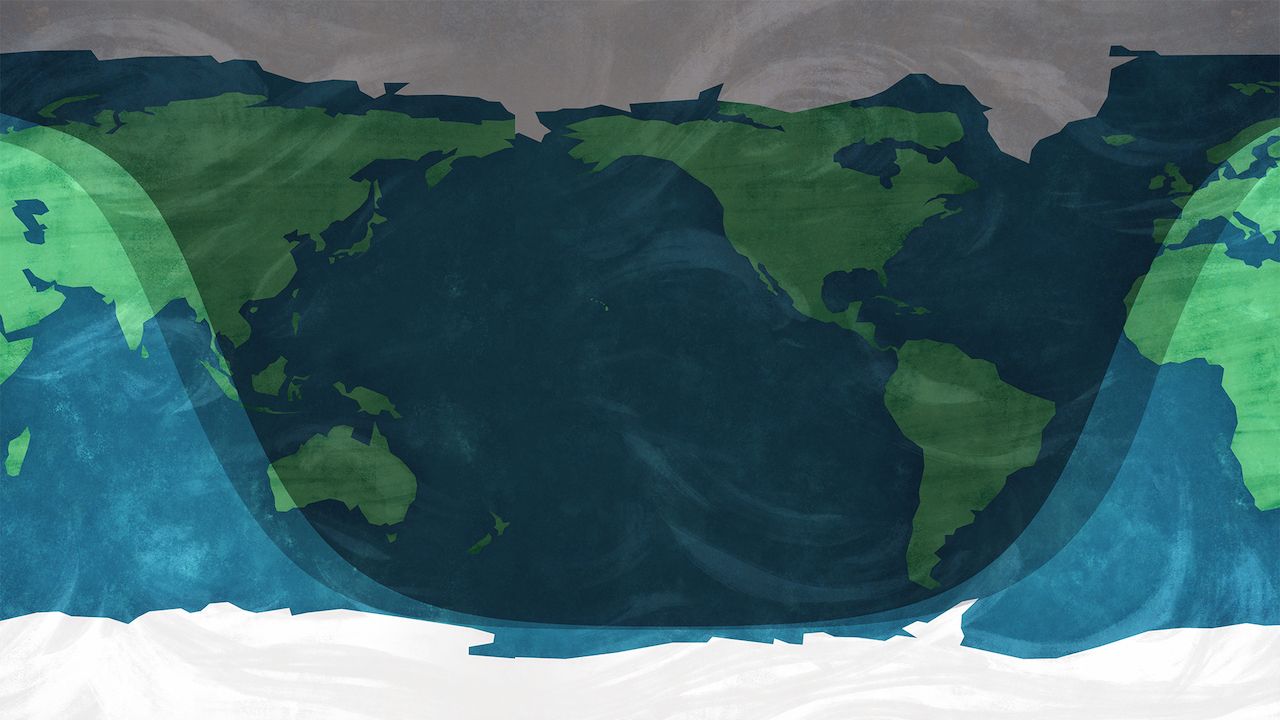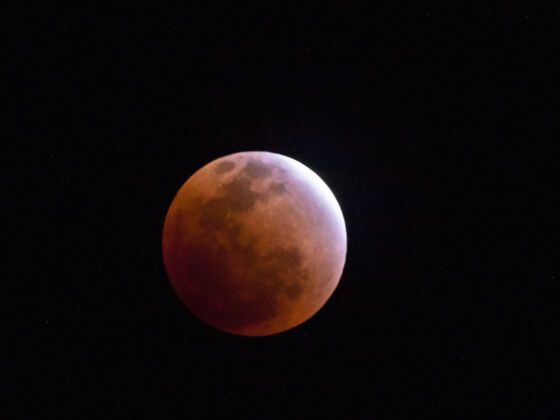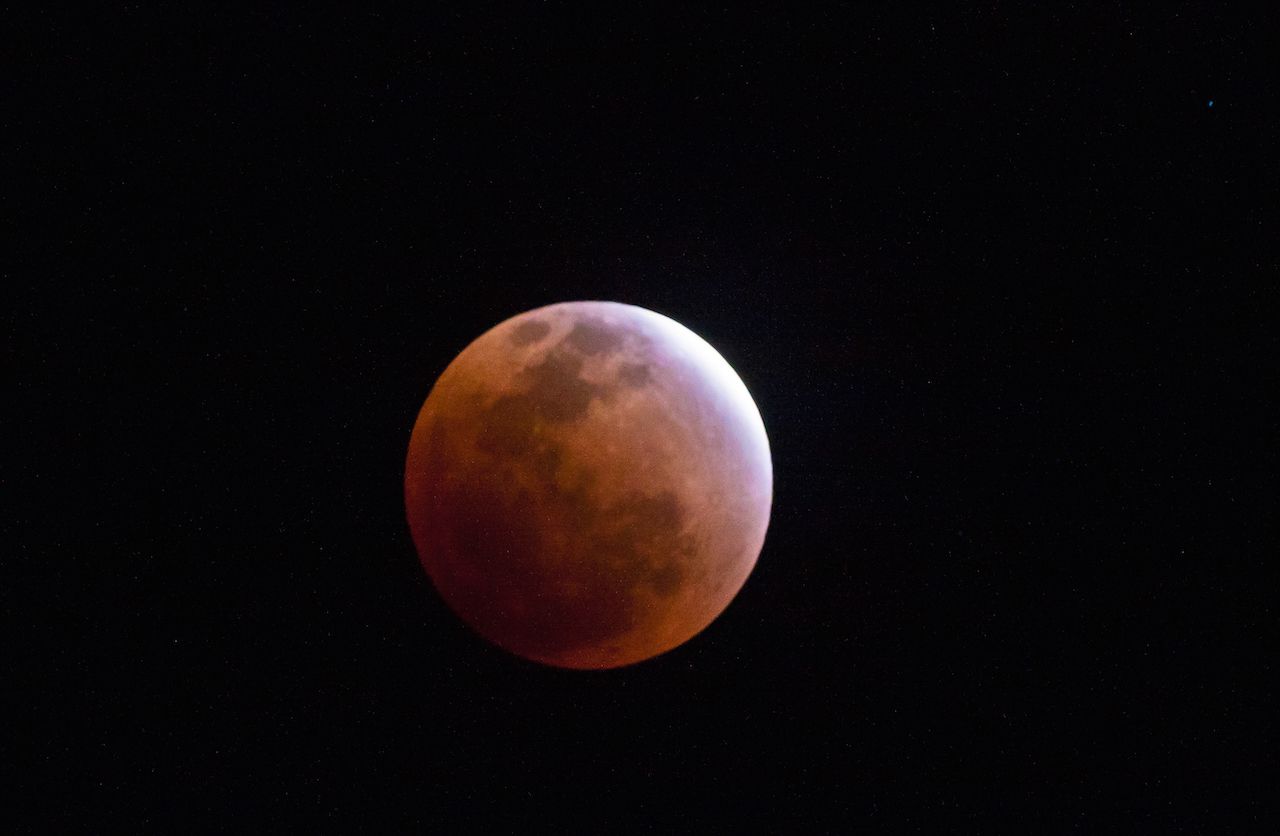The longest partial lunar eclipse of the 21st century will take place overnight on November 18 and 19, 2021. And if you’re in North America, you’re golden: You’ll be able to see the entire eclipse, which NASA predicted will last three hours, 28 minutes, and 23 seconds.

The darker shades show the areas where the eclipse will be the most visible. Photo: NASA/JPL-Caltech
While the must-see celestial event is technically a partial lunar eclipse, the experts at astronomy website EarthSky explain that “With a just thin sliver of the moon exposed to direct sun at maximum eclipse, the rest of the moon should take on the characteristically ruddy colors of a total lunar eclipse.”

